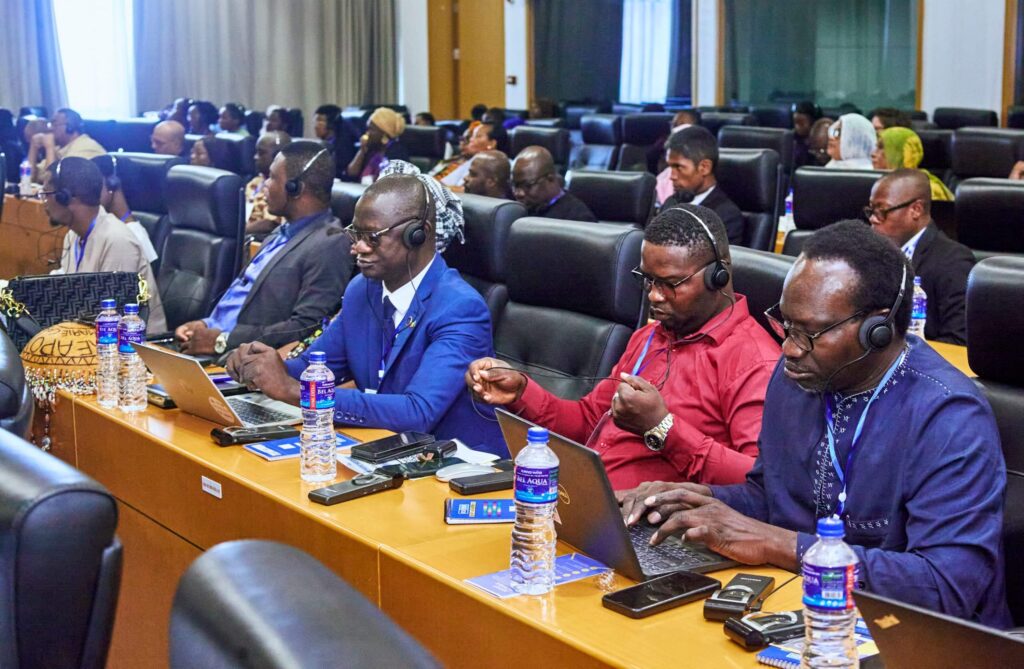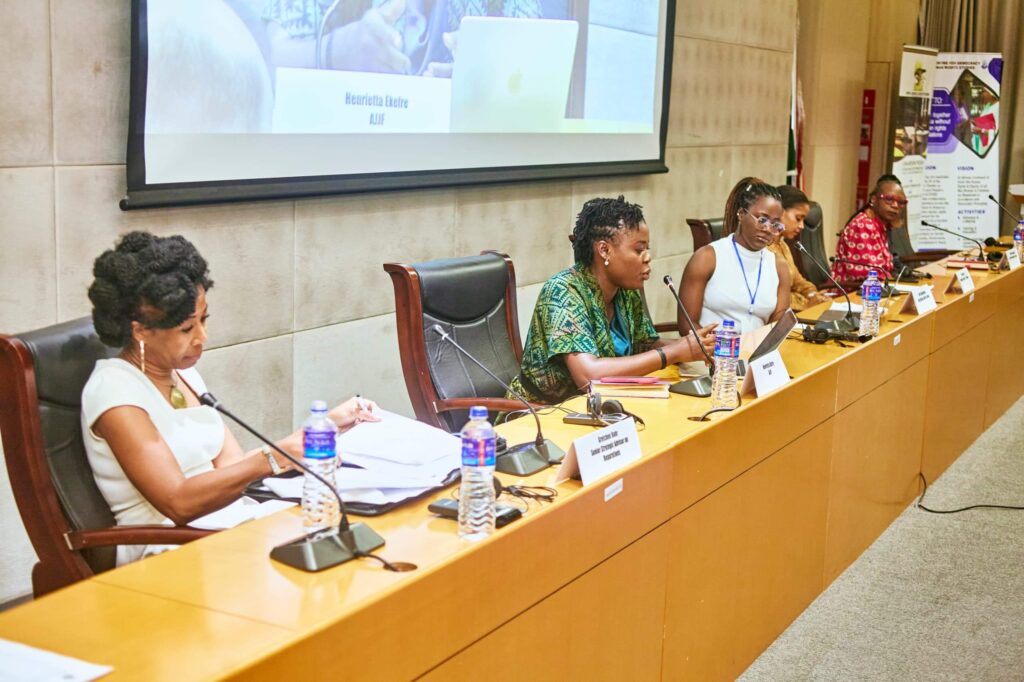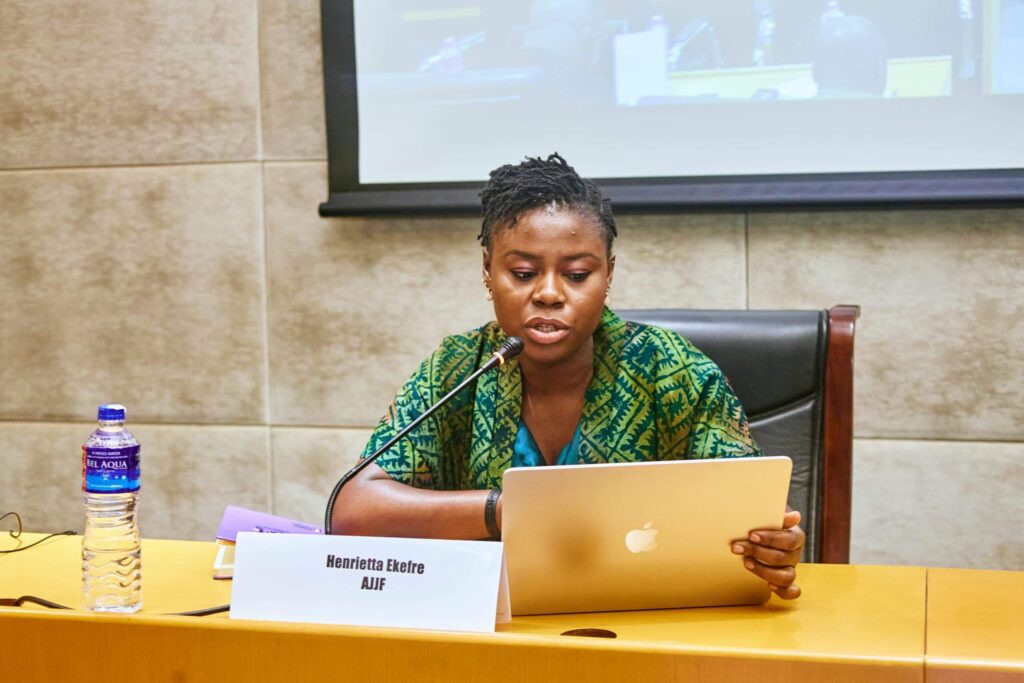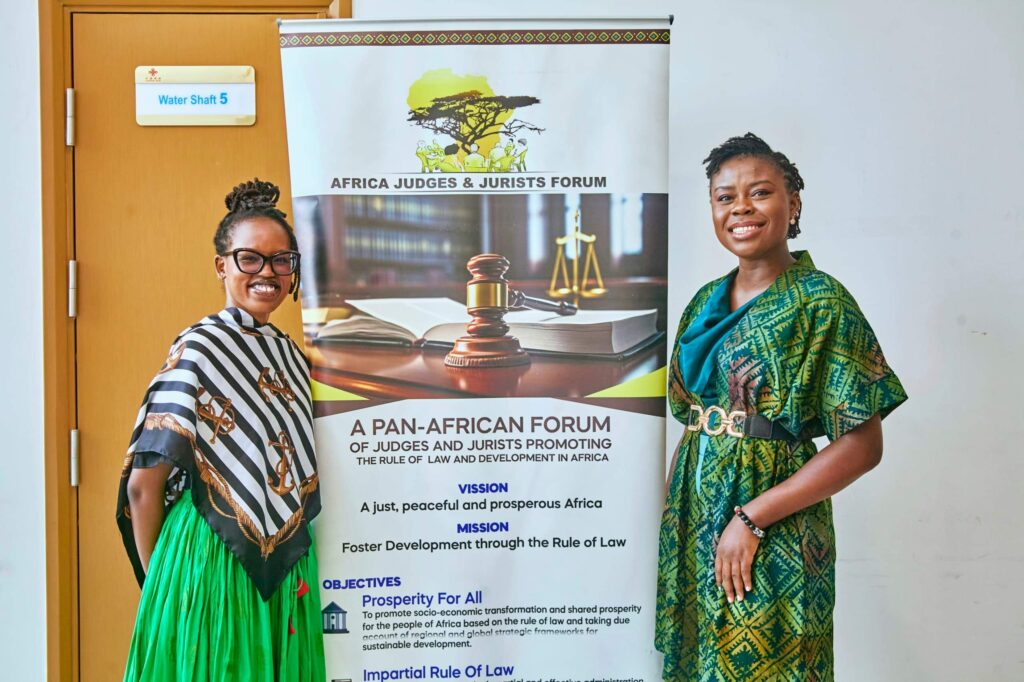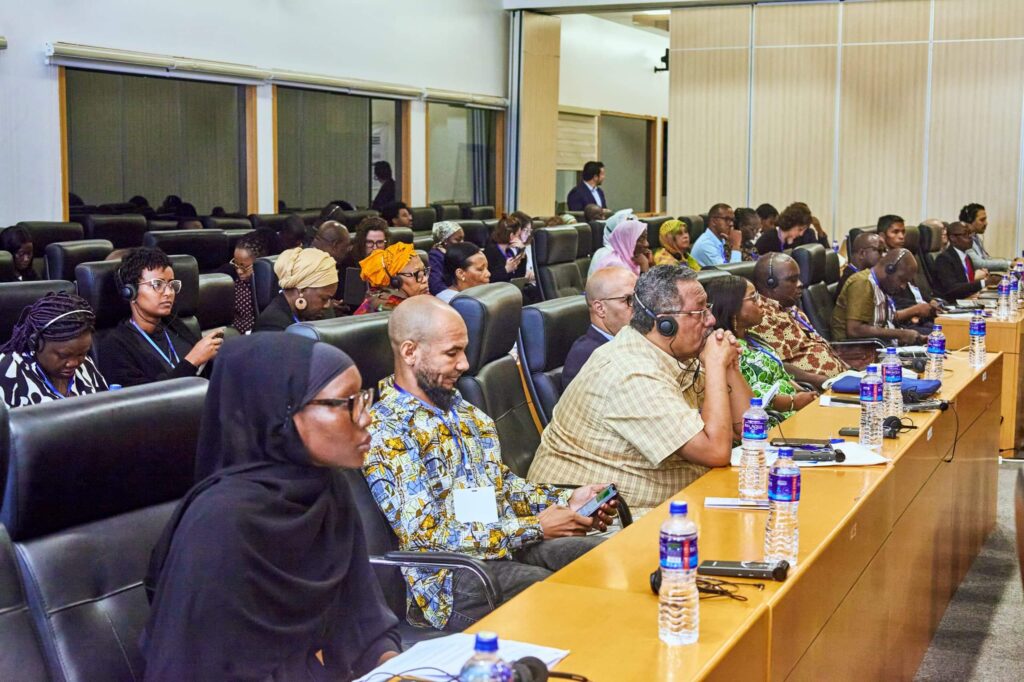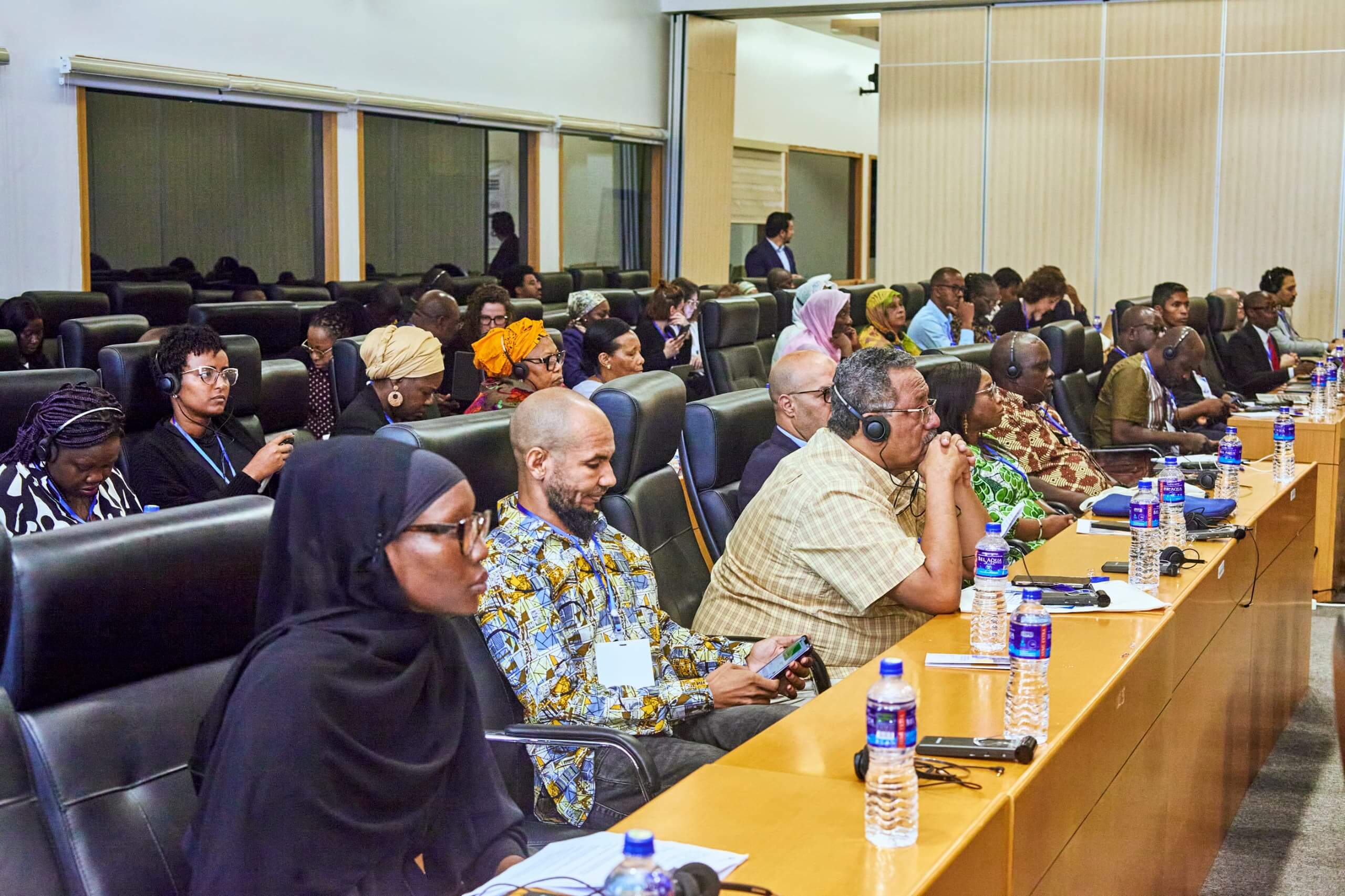Decrypting the African Union’s Theme of the Year: Justice for Africans and People of African Descent through Reparations
Date: 28th April 2025
Venue: OIC – Sir Dawda Kairaba Jawara International Conference Centre, The Gambia
INAUGURAL PANEL DISCUSSION: DISCUSSIONS BASED ON THE HISTORICAL CONTEXT, LEGAL FOUNDATIONS, AND MENTAL HEALTH IMPACTS OF REPARATIONS
Organised by Africa Judges and Jurists Forum [AJJF] in collaboration with Minority Rights Group, Reform Initiatives and Pan African Lawyers Union.
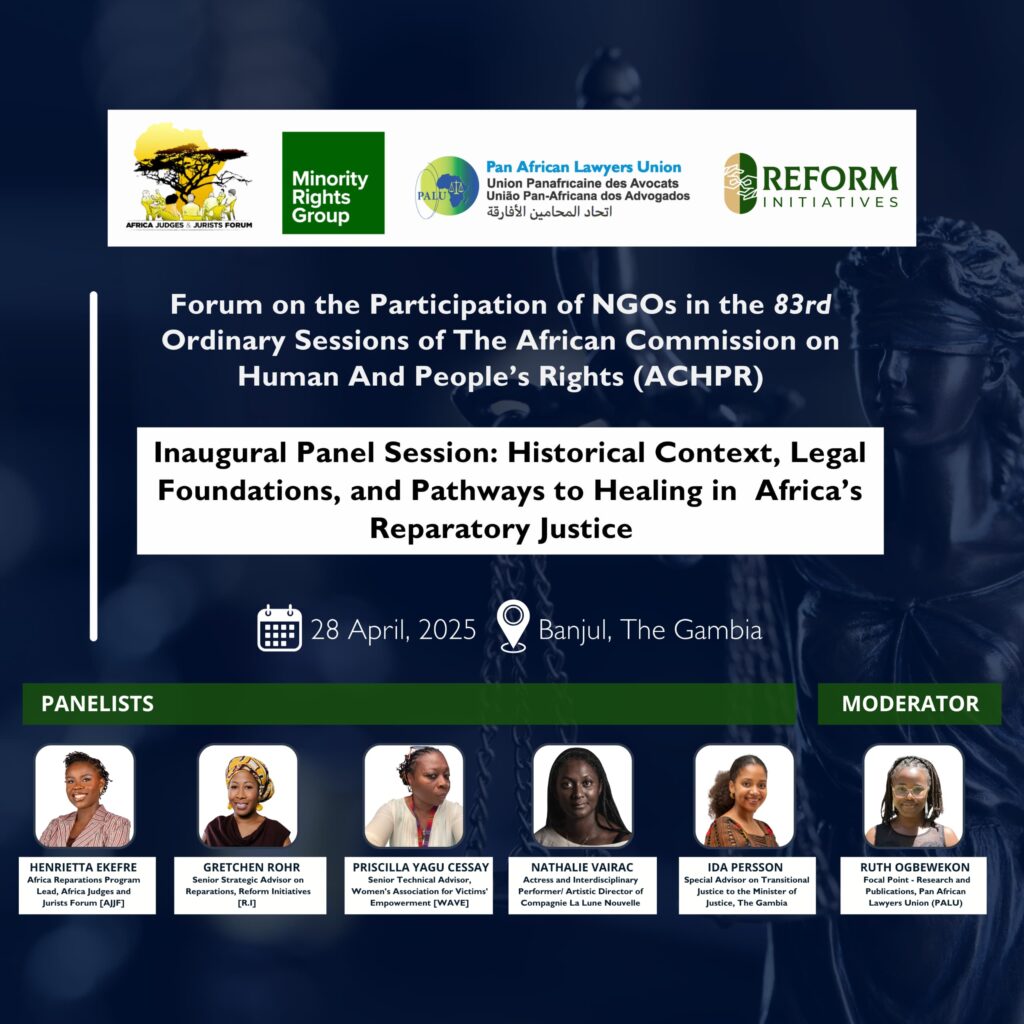
Panellists:
- Henrietta Ekefre – Africa Reparations Programme Lead, African Judges and Jurists Forum (AJJF)
- Gretchen Rohr – Senior Strategic Advisor on Reparations, Reform Initiatives
- Ida Persson – Special Advisor on Transitional Justice, Ministry of Justice, The Gambia
- Priscilla Yagu Ciesay – Senior Technical Advisor, Women’s Association for Victims’ Empowerment (WAVE)
Moderator: Ruth Ogbewekon – Pan African Lawyers Union (PALU)
Panellists:
Rapporteur: Christine Wainaina – Reparations Fellow, African Judges and Jurists Forum (AJJF).
- Overview and Context
The inaugural panel discussion at the Forum on the Participation of NGOS in the 83rd Ordinary Session of the African Commission on Human and Peoples’ Rights sought to unpack and shed more light on the African Union’s 2025 theme, focusing on reparatory justice for Africans and people of African descent. The panel discussion highlighted key dimensions of reparations, beginning with their historical roots, examining the legal frameworks for reparative justice, and exploring the broader psychological and community impacts that such reparations aim to address. The session brought together experts in reparatory justice, transitional justice, human rights law, and survivor-centred advocacy to explore these complex issues from an interdisciplinary perspective.
The panel aimed to challenge the prevailing discussions surrounding reparations by urging a shift away from mere symbolic gestures and recognition towards a more tangible, policy-oriented approach that could help to heal the lasting wounds of historical injustices. The panellists discussed the implications of the African Union’s theme for justice, advocating for reparations as both a moral and legal necessity for the future of African nations and their diaspora communities.
